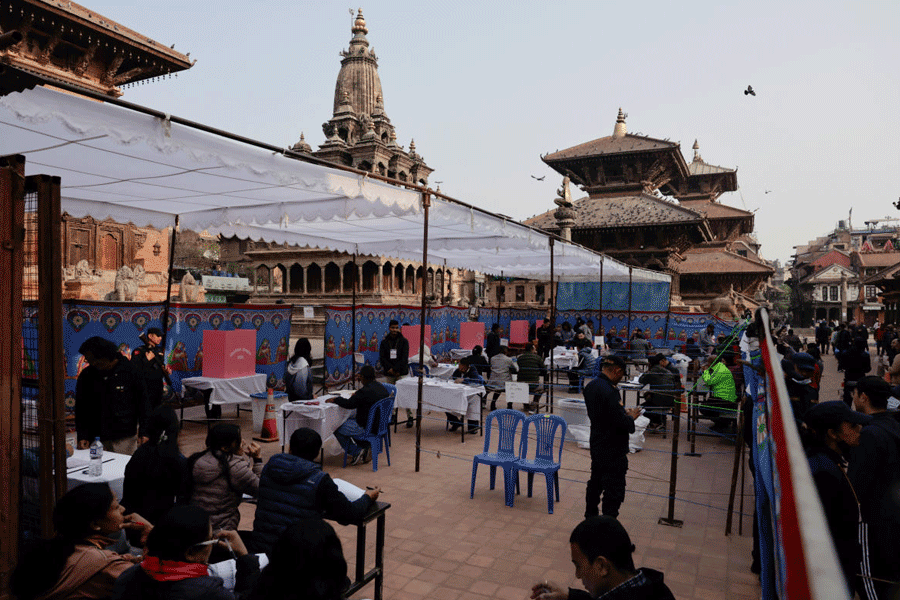Sir — In a recent video, a leopard can be seen prowling on the highway and then proceeding to play with a man. This is highly unnatural — leopards are canny animals and would not walk into a man-animal conflict when the odds are stacked against them. Some experts have suggested that the leopard may have been kept as a pet illegally, making it comfortable around humans. The illegal pet trade is difficult to monitor given that people usually keep the animals caged and hidden in poor conditions inside their homes. Steps must be taken to nip the problem at the bud by keeping stricter vigil on wildlife habitats so that animals cannot be taken captive in the first place.
Rima Roy,
Calcutta
Unseen labour
Sir — The order of the Supreme Court, staying the implementation of the controversial farm laws and informing the government unequivocally that it would not take away the citizens’ right to protest, was encouraging. Yet, right off the bat came the request to send women and elderly protesters back. It is difficult to understand the contradiction in terms — are women and the elderly not citizens or are they lesser beings who do not have the right to protest? It could also be argued that this takes women for granted and endorses infantilization of labour by women. What is worse, it reveals an ignorance about farming in India.
Women contribute as much to farming as their male counterparts if not more. In fact, the most difficult labour is often the responsibility of women — bending for hours while sowing seeds is just one example. Yet, their labour remains unseen. While the labour of women farmers may not be visible, women are remarkably visible in protests — be it those against the Citizenship (Amendment) Act, the farmers’ movements, workers’ movements or students’ movement. To participate in any movement taking place in the country is well within the rights of every Indian citizen, which is guaranteed under Article 19 of the Indian Constitution. The Constitution does not impose restrictions on participating in a protest on the basis of a person’s age or gender, neither should its interpreters.
Jayati Gupta,
Mumbai
Sir — As was predicted, the rise of the patriarchal, Hindutva politics has been directly proportional to a decline in the status of women in society. The apex court of the country thinks women farmers should sit at home — taking care of the elderly perhaps, who, too, have been asked to return home. The Madhya Pradesh chief minister, Shivraj Singh Chouhan, has said that women who go to work will have to register at a police station and will be ‘tracked’ for their safety. Multiple BJP states have passed a legislation that makes a joke of an adult Hindu woman’s right to choice. On the other hand, news of women being raped and then having to marry their rapist or tying a rakhi on them is becoming more and more common. A Hindu rashtra is not just one where Muslims and other minorities are discriminated against. It is also one where the modern woman is ‘tamed’ and brought back into the family, where she lives life at the mercy of her male relatives.
Kakoli Das,
Calcutta
Sir — The ongoing farm protests have raised a host of issues that affect the sector, beyond the laws which are being sought to be rolled back. One issue which deserves sharper focus is the largely unseen role of women in the farm sector. Many women farmers are not even aware of the entitlements they can get from the government as farmers. Owing to their lack of collateral — women own less than 2 per cent of farmland in India — they cannot access credit or navigate bureaucratic waters to get support for the right inputs for their crops.
There has to be gender-neutral institutional reform in agriculture for women to get their due. In most rural areas, men still dominate administrative processes which tend to work against women farmers. When a male farmer dies, the lack of access to land records, the aversion to take on powerful male family members, and the lack of awareness combine to exclude women from their right to land and livelihood.
M. Agrawal,
Delhi










